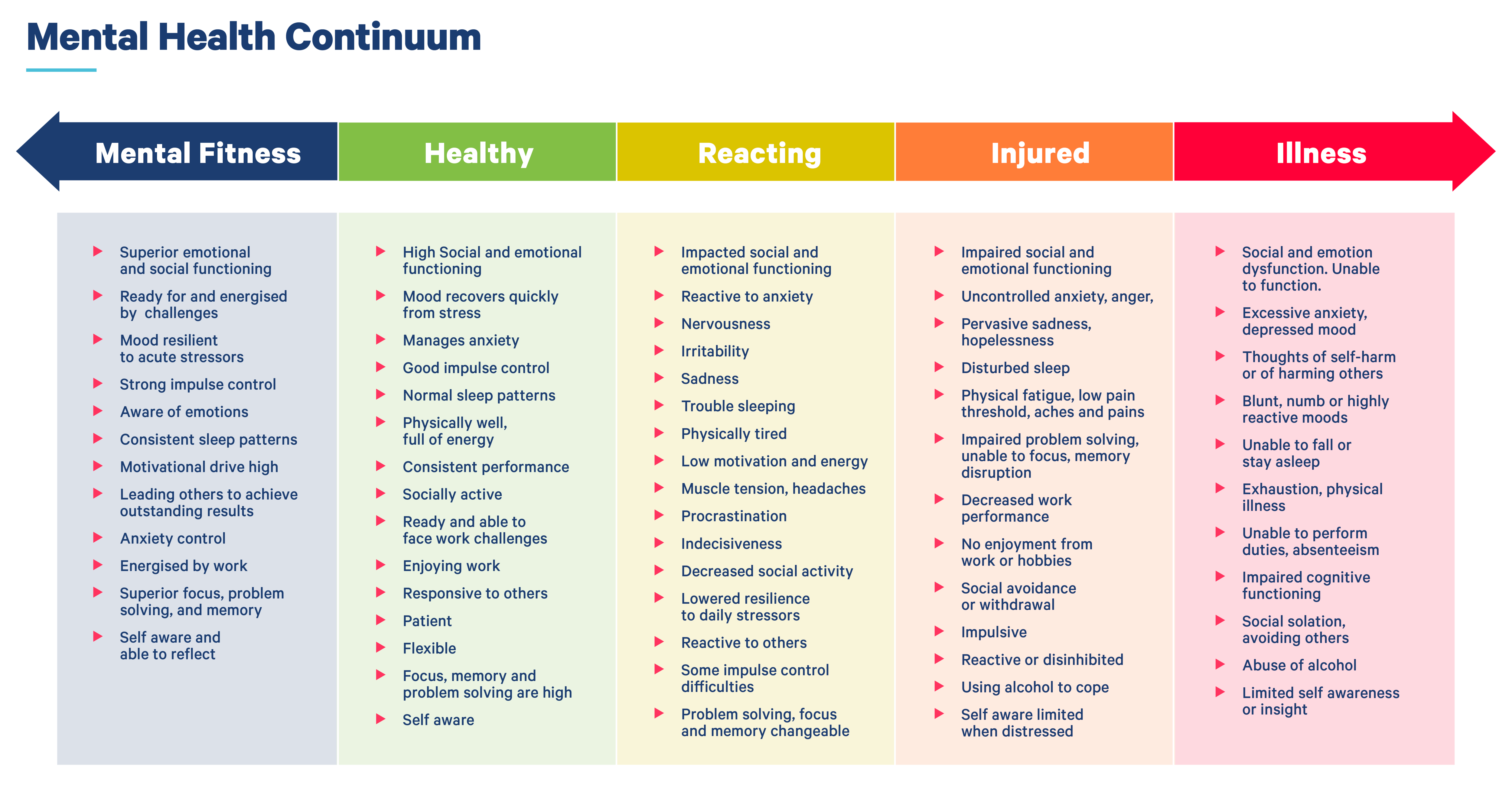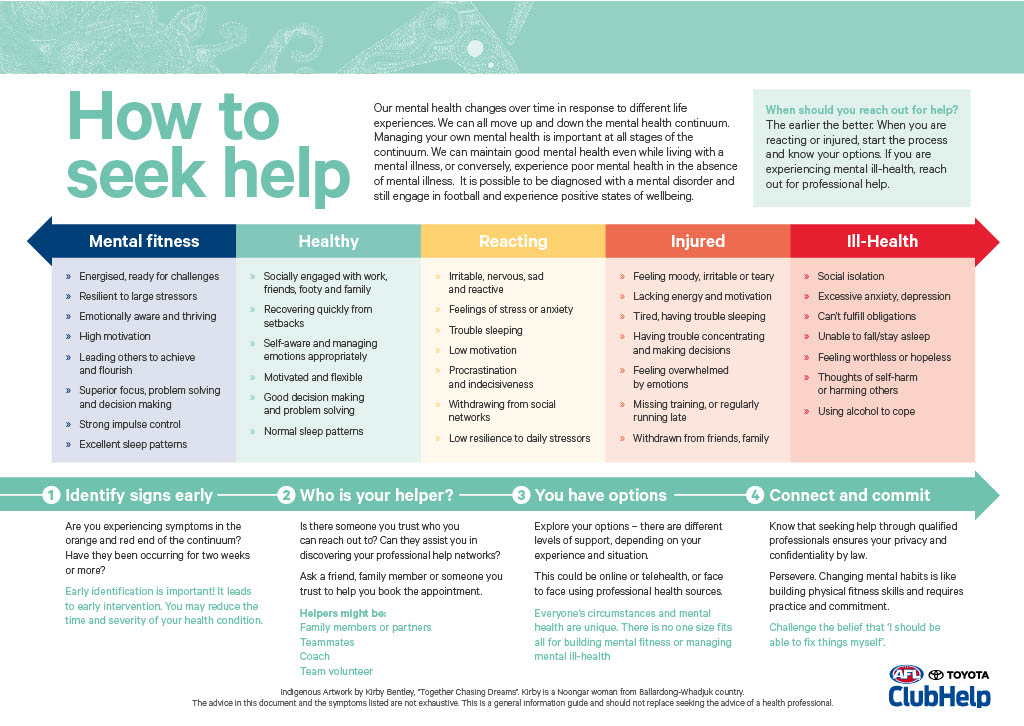Mental Health and Wellbeing at the AFL
Football Clubs are a great place to promote mental and physical health for their members. At the AFL, we understand that mental health exists along a continuum. Mental health isn’t something we either do or don't have. Our mental health is like our physical health - it changes over time in response to different experiences. We know that managing our mental health is important at every stage of the continuum.

What is Mental Health?
A state of wellbeing where you realise your own abilities, can cope with the normal stresses of life, can work productively and fruitfully, and are able to make a contribution to your community.
Aboriginal and Torres Strait Islander Australians, as the First Peoples of Australia, have deep connections to land, language, ceremony, kinship systems, and cultural knowledge and practices that contribute to social and emotional wellbeing (SEWB).
What is Mental Fitness?
Having a repertoire of mental skills and resources at your disposal that allow you to flexibly adapt and respond to challenges or advantages, so that you are able to thrive in life and contribute positively to your community.
What is Mental Ill-Health?
Mental ill-health impacts an individual’s ability to function and fulfil their everyday roles and responsibilities. Mental ill-health impacts everyone differently, but can involve clusters of symptoms across behaviour, emotions, cognition, sleep and relationships.
In treatment and research settings there are common ways of classifying mental health conditions that can help with treatment and communicating about mental illness. The most common mental health conditions are anxiety, depression and substance use disorders.
Mental ill health is a common experience for many people. Find out how common from data presented by Beyond Blue.
The AFL Mental Health and Wellbeing team has compiled a series of resources for clubs, community members and AFL Industry staff to help them navigate the mental health treatment and support services available. Inspired by the Mental Health Continuum, the How to Seek Help tool outlines the experiences of mental health along the continuum, and guides people through the steps to seeking help at all steps in the continuum. The guide acknowledges that there is no one size fits all for mental health and wellbeing services and we all need options. Some of the different options include online self directed programs, telephone counselling or face to face mental health care planning. The How to Seek Help Navigator Tool is for anyone looking for information on where they can find help for themselves or others.


